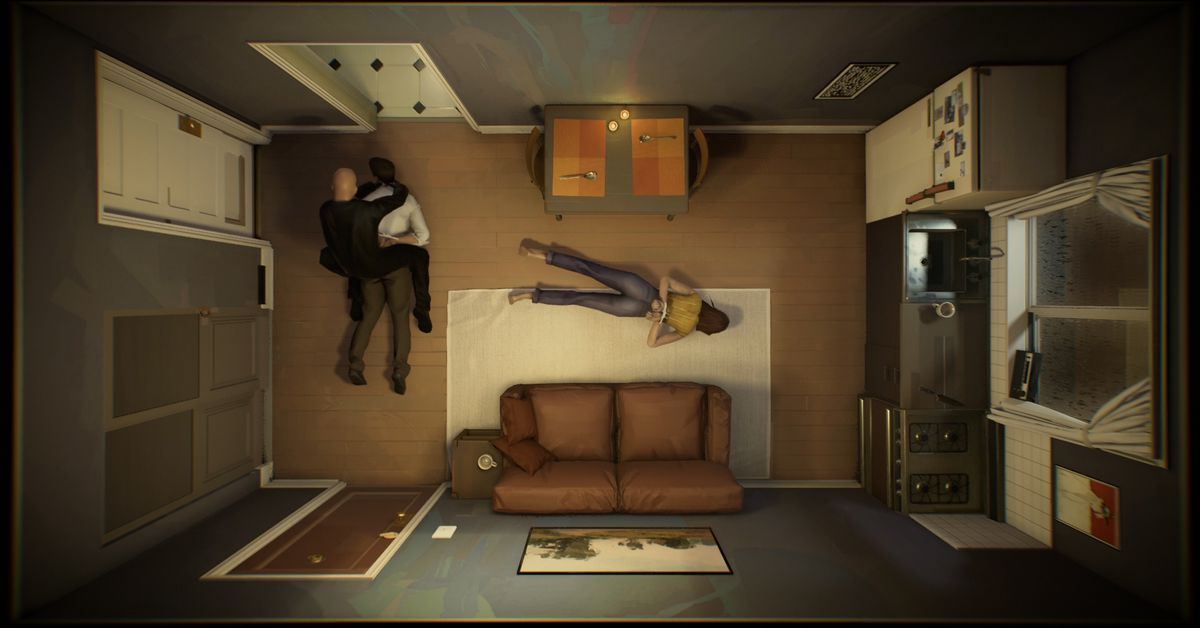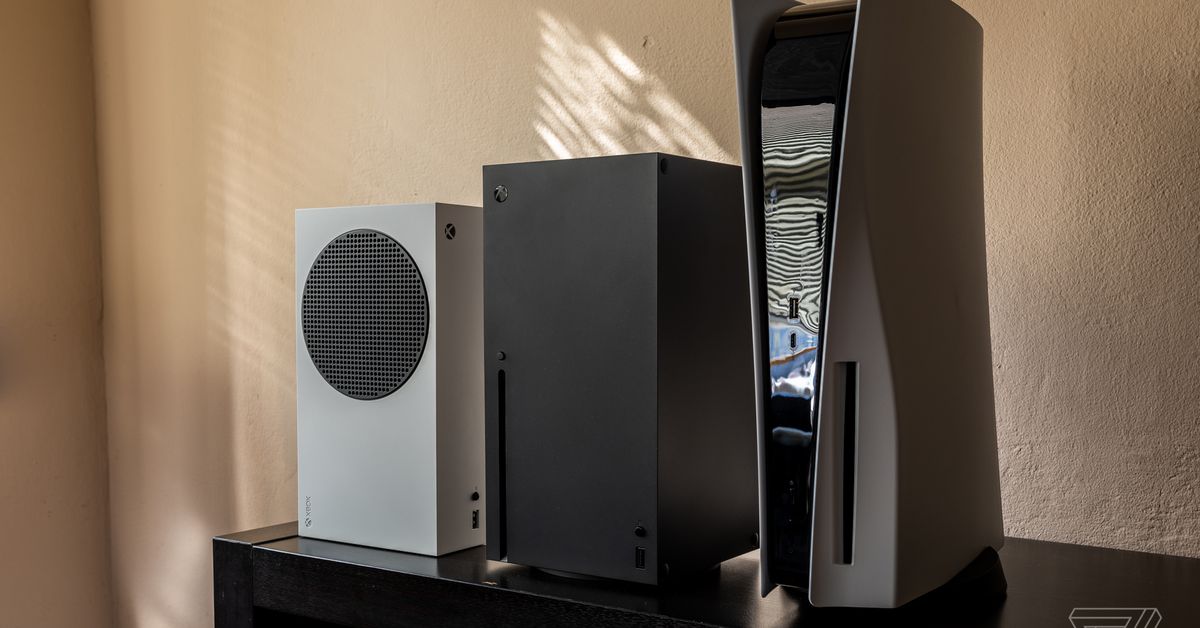A classic point-and-click adventure game mashed with a Hollywood movie
Luis Antonio has been thinking about time loops for a long time.
In 2006, when he was working as an artist at Rockstar Games, the studio was soliciting pitches from staff for a new game idea. “I thought, ‘Let’s do a time loop game,’” he explains. “I was thinking something Hitchcock, like The Birds.” The studio didn’t take much interest. “They didn’t even look at it.” The same thing happened a few years later when he was working at Ubisoft. But he kept thinking about it. He tried to get some friends to work on the concept with him, but nobody wanted to give up their free time. “I gave up on the idea,” he says.
Years later, when Antonio was working as an artist on The Witness, which was developed by a much smaller indie team, he noticed that everyone around him seemed to be working on a side project. They would squeeze in some time with their personal creation while on lunch or after work. So he decided to learn how to program and pick up the concept again. “If I want this idea to be explored to its full potential, it makes sense that I actually do it myself,” he says.
That side project has gone on to become a big production called 12 Minutes. Antonio is now working with a small team and has partnered with publisher Annapurna Interactive, with a voice cast featuring stars Daisy Ridley, Willem Dafoe, and James McAvoy. 12 Minutes is a tense thriller that has players reliving the same period of time over and over again — the titular 12 minutes — as they try to uncover a startling mystery. “It grew into a more refined and nuanced experience,” Antonio says of the long road from side project to full commercial release.
In 12 Minutes, you play as a husband, voiced by McAvoy, who comes home from a long day to what should be a romantic evening with his wife, played by Ridley. They live in a tiny apartment, and just as they’re about to sit down and enjoy dessert, a man claiming to be a cop (played by Dafoe) bursts through the door and accuses the woman of murder. When the man interferes, the supposed cop chokes him — but instead of dying, the man goes back in time to the beginning of the evening.
At least, that’s how things went for me the first time I played. 12 Minutes is a game about experiencing the same period of time repeatedly, choosing different actions each time to hopefully learn new information. During my second loop, I knew Dafoe’s character would tie up my wrists, for instance, so before he arrived, I grabbed a knife to cut myself free. (I still ended up dying.) There are lots of little elements like this tucked away; Antonio describes 12 Minutes as a game about “accumulated knowledge.” The more you play, the more you understand.
Despite the star power behind the game, 12 Minutes still largely sticks to its indie roots. It’s a tight, compact experience. The apartment is small, as is the list of actions at your disposal at any given moment. You view the world from a top-down perspective, which was originally a practical choice — it made movement simpler for a first-time programmer — but ended up giving the game a distinct look. You never actually see the characters’ faces, so the game relies on animation and dialogue to convey meaning and emotion. It plays a bit like an old-school point-and-click adventure game mashed with a cinematic thriller — and that’s by design.
Antonio says he loves classic LucasArts adventure games but also finds the genre frustrating at times. “Point-and-click games have this ambiguity,” he says. “There’s a window, but you don’t know if you can open it or not. Suddenly, you can open it because you dragged this thing over. There’s this frustration that comes out of the way they were designed.”
That’s something he wanted to change with 12 Minutes. “How can I make a very tight vocabulary where, the moment you get into the apartment, there are no questions about what you can use and what you cannot use? If you have a glass of water and you have a sink, I don’t have to tell you what’s going to happen if you drag the glass to the sink. All of the elements you can use are very clear. After one loop, you know everything you have for the rest of the game.”
The small space of the apartment, and the relatively limited number of items in it, are designed to make the experience clearer and more intuitive. Designing 12 Minutes became a process of removing things — objects, interactions, etc. — in order to make everything easier to immediately understand. “The more open it is, the more frustrating it is,” says Antonio. “By removing possibilities, the experience becomes a lot more pleasant.”
One example is the time element. Despite how important it is, it’s not exactly front and center; you won’t see a timer counting down 12 minutes. But after a few loops, you can get a sense of how much time has passed. Maybe you’ll remember the sound of a car outside that drives by a few minutes in or notice as the sun starts to set. It’s subtle, but that wasn’t always the case. “Early on, there were clocks everywhere,” says Antonio. “You could look at a phone to see the time, there was a clock on the wall. But I realized that if you do four or five loops, you get a feel for when things will happen.” This also had the side benefit of further immersing players in the time loop, forcing them to pay closer attention to small details.
The same goes for the loop itself. In 12 Minutes, you die repeatedly, but because it happens so quickly, it’s not particularly frustrating. You have enough time to make some progress, but if you make a mistake, you don’t have to wait long to try again. “Imagine the loop is five hours, and by hour four and a half, you make a mistake and want to try everything again,” says Antonio. “Here, nothing is further away than a couple of minutes.”
And while one of the big selling points of the game is its star-studded cast, originally, voice acting wasn’t even part of the plan. It wasn’t until Antonio partnered with publisher Annapurna, which has plenty of connections on the film side, that it became a possibility. He was able to direct the actors remotely; McAvoy and Ridley were on a soundstage in London, while Dafoe zoomed in from Berlin. Often in games, voice actors record their lines independently, but that wouldn’t really work for 12 Minutes, where the interactions between characters are so vital.
“When an actor says a line, the way he says a line will decide how the other one replies,” Antonio explains. “They would bounce a lot off each other, and the whole conversation could have a completely different texture. After four or five sessions, they were comfortable with the material.” Plus, he adds, “Willem didn’t want to be in a room saying lines to a wall.”
12 Minutes is listed as “coming soon,” and it’ll be available on PC and the Xbox One and Series X when it does launch. For Antonio, it was a chance not just to create his own game, but also merge two things he loves — adventure games and film — in an approachable way. It required patience, years of refinement, and lots of evenings and weekends spent teaching himself to code. “I didn’t know it would be this complicated,” says Antonio.














